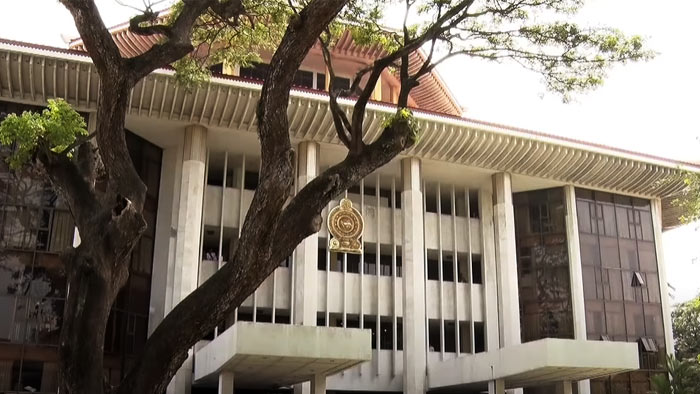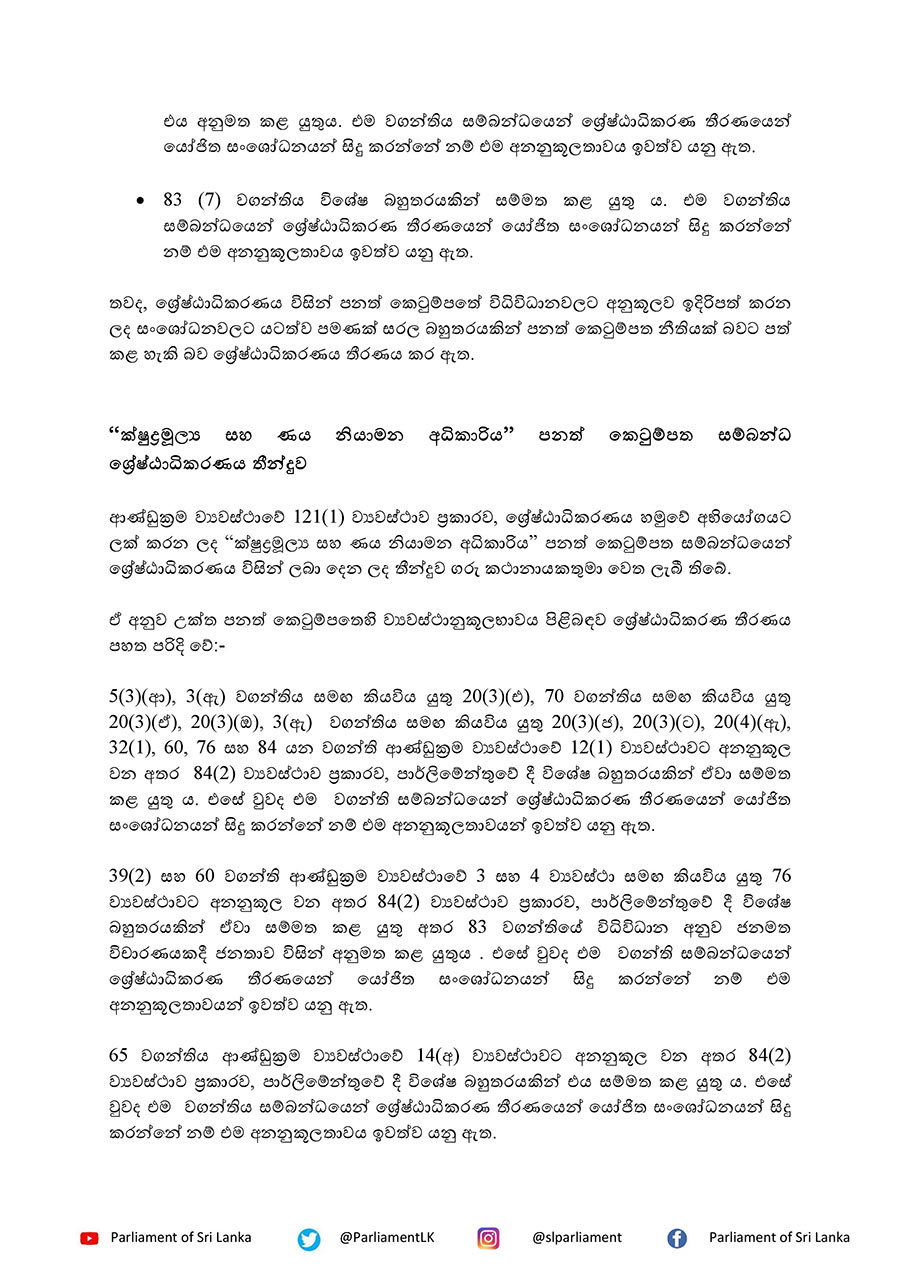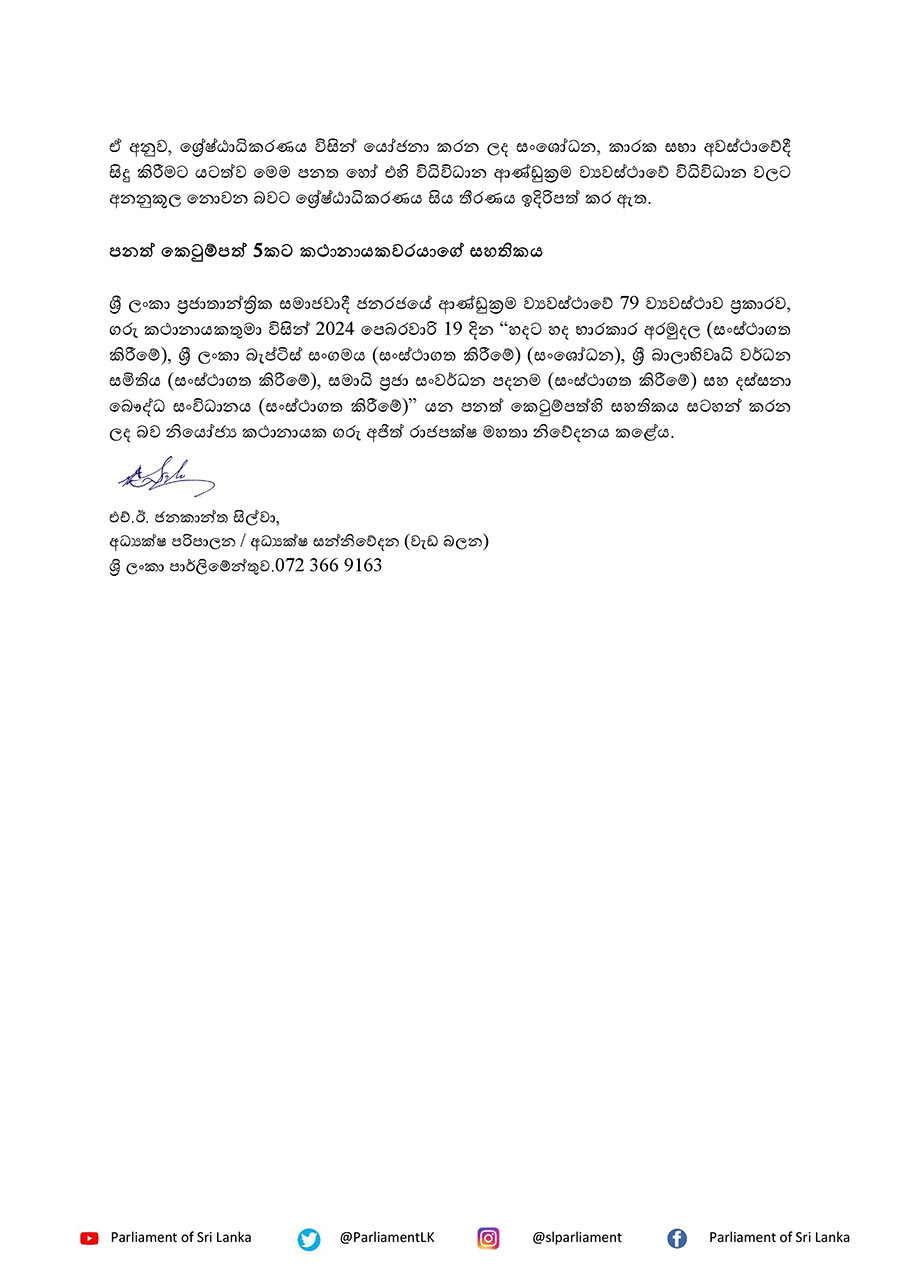Supreme Court informed Parliament, Proposed Anti-Terrorism Bill Conflicts with Constitution

The Supreme Court of Sri Lanka on Tuesday (February 20) has informed Speaker of Parliament Mahinda Yapa Abeywardena that certain sections of the proposed Anti-Terrorism Bill conflict with the Constitution.
Therefore, these sections require approval through both a special majority and a referendum.
The Supreme Court clarified that while some clauses of the Anti-Terrorism Bill need only a special majority for passage, others must undergo both a special majority vote and a referendum unless amendments suggested by the Supreme Court are carried out.
Deputy Speaker Ajith Rajapaksa announced Sections 3, 40, 53, and 70 as unconstitutional, requiring approval by a two-thirds majority in Parliament.
However, the court suggested that the unconstitutionality of sections 3, 40, 53, and 70 would be nullified if the recommended amendments provided by the Supreme Court are adopted.
On 02 February, the Supreme Court concluded the hearing of petitions filed challenging the government’s new Anti-Terrorism Bill following the lengthy proceedings that continued for six days in total.
Thirty-one petitions had been put forward against the proposed legislation which seeks to replace the controversial Prevention of Terrorism Act (PTA).
Among the petitioners are His Eminence Malcolm Cardinal Ranjith, General Secretary of Samagi Jana Balawegaya (SJB) Ranjith Madduma Bandara, National People’s Power (NPP) MP Vijitha Herath, Centre for Policy Alternatives (CPA), Socialist Youth Union (SYU), Duminda Nagamuwa of Frontline Socialist Party (FSP) and the Ceylon Teachers’ Union (CTU).
The Attorney General is listed as respondent in these petitions, which seek a Supreme Court order mandating a parliamentary vote requiring a two-thirds majority and a referendum for the Bill tabled on January 10.
Petitioners argue that the Bill, in its current form, would grant excessive powers to the Tri-Forces, Police, and Coast Guard, allowing arbitrary arrests without reasonable suspicion, violating constitutional rights such as freedom of expression.
Latest Headlines in Sri Lanka
- Johnston Fernando, two sons and others further remanded until February 13, 2026 January 30, 2026
- Sri Lanka raises daily wage of plantation workers to Rs. 1,750 January 30, 2026
- Sri Lanka expands Internal Affairs Units to 250 more state institutions January 30, 2026
- Three arrested over Rs. 17 Million Lanka Sathosa garlic scam January 30, 2026
- Businessman arrested over Rs. 30 Million money laundering case linked to former minister January 30, 2026





